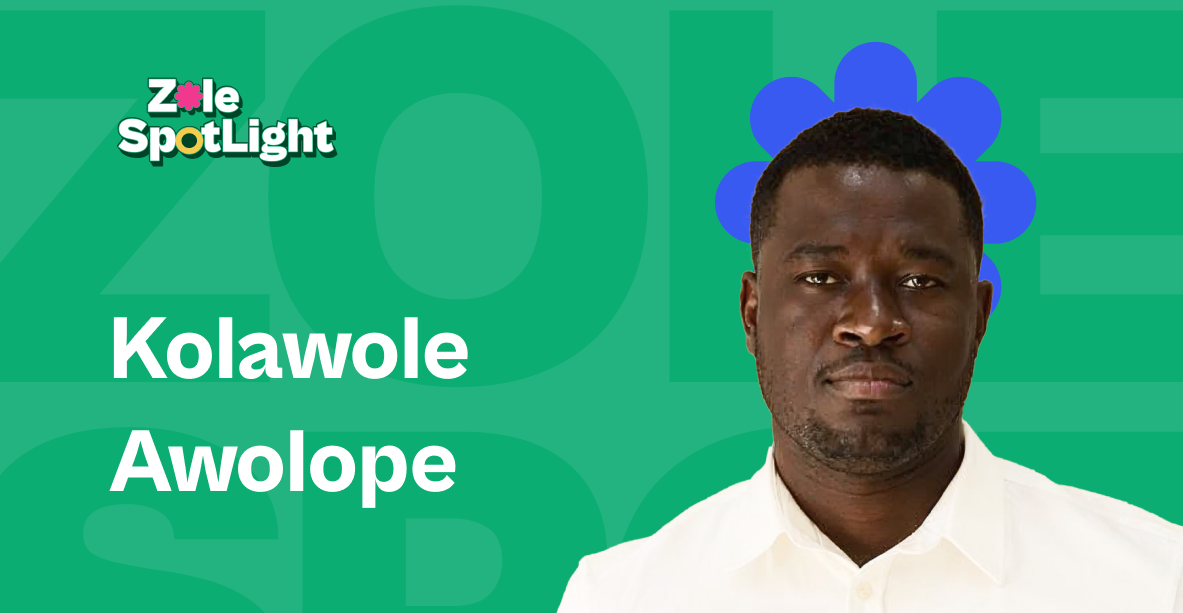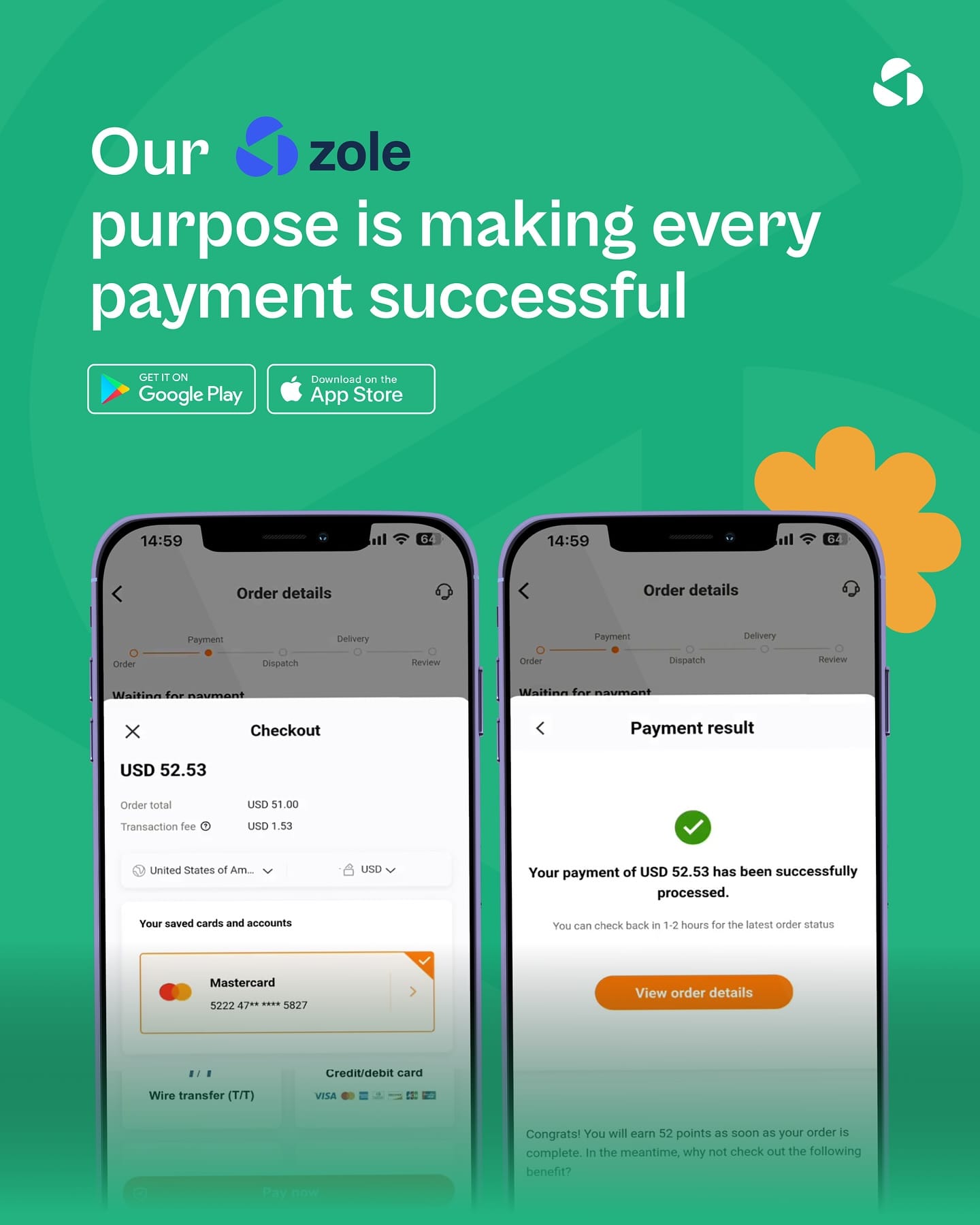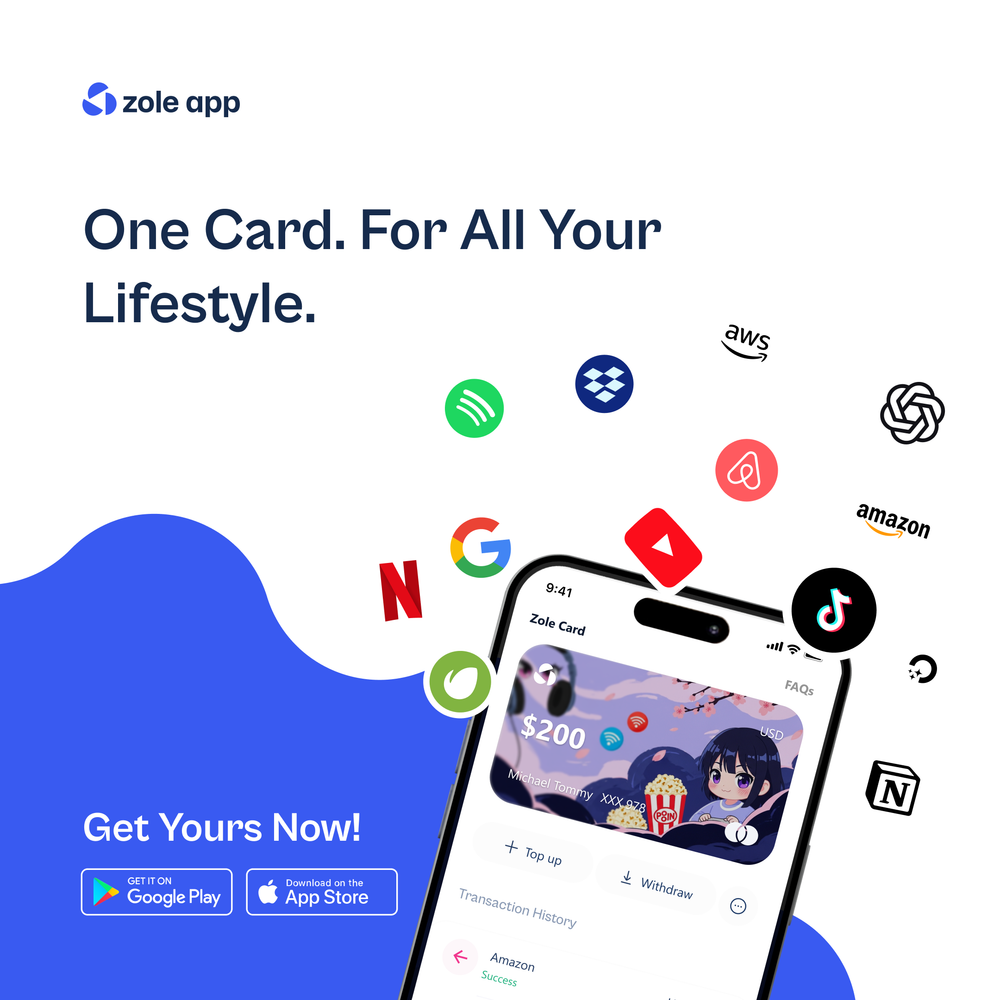From Computer Village to the UK to Canadian Boardrooms: How One Nigerian Turned Early Tech Exposure into a Business Analysis Career

The boy who fixed computers in primary school is now leading digital transformation projects across North America and his journey reveals the hidden advantages of Nigerian hustle culture.
While most kids were learning to tie their shoes, Kolawole Awolope was troubleshooting computer hardware for university students at his father's business center in what would later become Computer Village, Lagos.
"Students from actual computer schools would come to our business center with their projects," Kolawole recalls. "I'd be the one helping them with their documents, and I'd wonder, you guys are in computer school, but I'm the one fixing your problems?"
That early exposure to the gap between theory and practice would shape everything that followed: his approach to education, his career strategy, and ultimately his path from Lagos to London to leading business analysis teams in Canada's energy sector.
Today, Kolawole is a Senior Business Analyst specializing in ServiceNow, Dynamics 365, and Salesforce implementations. He's led digital transformation projects worth millions, manages cross-functional teams, and has built a career that spans three countries. But getting here required more than technical skills, it demanded strategic thinking about currency arbitrage, relentless networking, and knowing when to bet on yourself.
What You'll Discover in Kolawole's Journey:
- How his father's business center gave him a 15-year head start on practical tech skills
- Why he chose economics over computer science (and how it made him a better analyst)
- The END SARS protests that crystallized his decision to leave Nigeria
- How he accidentally saved thousands on UK expenses by learning about exchange rates
- Why he became a student ambassador for 600+ prospective Nigerian students
- His strategy for landing a business analyst role while still studying
- The conversation with his wife that led them both to Canada
- How his "generalist" Nigerian background became his competitive advantage
- His contrarian view on AI replacing business analysts

🖥️The Business Center That Became Computer Village
Kolawole grew up watching his father run what Nigerians called a "business center"—essentially a computer services shop where people came to type documents, print projects, and get basic IT support. This was before personal computers became common in Nigerian homes.
"Back then, if you needed to type a school project, you couldn't do it at home. You had to take it to someone else because personal computers were very limited," he explains.
While still in Primary school, Kolawole was managing multiple customer projects simultaneously, helping people who'd attended actual computer schools with their technical problems. The irony wasn't lost on him.
"I'd be thinking, 'You guys are the ones in computer school, and I'm helping you?' That's when I started understanding there's a big distinction between theoretical knowledge and practical skills."
His father's business was located in an area that would eventually expand into Computer Village—Lagos's famous technology hub. But Kolawole was there from the beginning, watching it grow while developing an intuitive understanding of hardware, software, and most importantly, customer needs.
When computers inevitably broke down, young Kolawole would observe the repair technicians. Eventually, he started diagnosing and fixing problems himself. By secondary school, he was building desktop computers from scratch and had completed a formal apprenticeship in computer repair.
"Loading Windows 95 and 98 was actually very technical back then. When Windows 2000 came out, it was much better. But I knew all the operating systems, understood hardware components, and could communicate technical problems to non-technical customers."
The foundation was set: Technical expertise combined with business communication skills—exactly what a business analyst does, though he didn't know that term yet.

📊The Economics Student Who Chose Business Over Code
Despite his deep technical background, Kolawole made a strategic decision that surprised many: he studied economics at Ekiti State University instead of computer science or Medicine like his dad wanted.
"I wanted to understand the business side of technology, not just the technical implementation," he explains. "I'd seen how my dad's business operated, and I realized that understanding market dynamics was just as important as understanding code."
This decision proved prescient. While working at his father's business center during university breaks, Kolawole naturally found himself translating between technical repair teams and frustrated customers—explaining what had gone wrong, why it mattered, and how much it would cost to fix.
"I'd tell customers, 'This component is bad, here's what it does in your system, and that's why you're experiencing this specific problem.' I wouldn't just say something was broken. I'd break down the business impact."
After graduation, he joined a Nigerian bank's IT department as an analyst, working on integration projects and data migration—the kind of work that requires both technical understanding and business acumen.
"Financial organizations hold different types of customer data, and they have to be very careful about how they handle it. I was in a role where I could help with the IT implementation without being a developer myself."
But by 2020, larger forces were reshaping his career trajectory.

✊🏾How Protest, Pressure, and Politics Fast-Tracked a Big Life Decision
Kolawole had been considering international education for months due to personal issues when the END SARS protests erupted across Nigeria in October 2020. He'd been actively involved in the demonstrations.
"I'd already made up my mind to leave before October 20th. I just didn't have the means yet. But when the protests happened and everything that followed, I became desperate to leave. I felt like it was time to go."
The convergence of personal ambition and political frustration created urgency. He'd been accepted to study International Business at Ulster University's Birmingham campus, but funding remained a challenge.
"In my head, looking at where I wanted to be, the amount of money I needed shouldn't have been enough to stop me from achieving this dream. If I needed a billion, okay, maybe that's unrealistic. But a few million naira? That's a lot of money, and I didn't have it, but I didn't think it was big enough to stop me from doing what I had to do."
This mindset—treating financial obstacles as temporary rather than permanent—would prove crucial throughout his journey.
By 2021, he'd secured funding and was London-bound, leaving behind his computer repair business and a banking job for the uncertainty of international student life.
💸Meet the Uncle Who Saved Kolawole (and His Wallet)

Many Nigerian students arrive in the UK stressed and struggling. Kolawole's experience was different, thanks to his mother's stepbrother who'd been settled in London for nearly a decade.
"Uncle Vincent picked me up from the airport, took me shopping, and had already stocked my place with food—bags of rice, yams, peppers. I had enough food for six months. The only pressure I was under was rent."
But Kolawole's biggest stroke of luck came from a costly mistake that turned into a learning opportunity. For months, he'd been paying all his UK expenses using the black market exchange rate back in Nigeria—essentially doubling his costs.
"I didn't know there was something called an official CBN rate for international payments. A friend educated me that I should have been paying through official channels. When I thought I'd need £8,000-9,000 for something, I actually only needed £5,000-6,000."
His soft landing allowed him to focus on what mattered: building a network and positioning himself for career success.

👥The Accidental Student Ambassador: How Kolawole Became Customer Service Rep for 600 Nigerians
Rather than just surviving as a student, Kolawole positioned himself as a bridge between Nigeria and the UK. He volunteered to become a student ambassador for his university—initially unofficial, then formally recognized.
"I had WhatsApp groups of about 600 students who were planning to come to my school or other UK universities. For many of them, I was their first point of contact when they arrived."
This wasn't just community service—it was unintentional strategic networking that connected him with hundreds of ambitious Nigerians making similar transitions. These relationships would prove invaluable throughout his career.
Simultaneously, he worked as a gaming host at a Birmingham casino—a social environment that helped him understand British culture while earning money.
"Working at the casino was perfect for a student because it was very social. I got to interact with different types of people and learn how things worked in the UK. In my head, it was like 'I belong here. This is where I'm supposed to be.'"
But his most strategic move was landing a part-time business analyst role with an IT company in Newport while still studying.
"I couldn't work full-time because of student visa restrictions, but I got experience in the role I actually wanted. As soon as I finished my exams, I went full-time and even got promoted to lead a team."

🎓The Job That Started Before Graduation
While his classmates were polishing CVs and attending career fairs, Kolawole was already working as a business analyst. His part-time role during university became full-time employment the day after his final exam.
"I'd already shown the team my value, helped with multiple project phases, and even assisted with recruiting new team members. When there was a chance for a senior role, I just stepped into it naturally."
This experience taught him a crucial lesson about the UK job market: relationships and proven performance matter more than perfect credentials.
From there, he moved to a senior analyst role with an energy company, then landed a remote position with a US-based firm—which created his next challenge.
"Working US hours from the UK meant dealing with a six-hour time difference. Most of my meetings were at late in the evening London time. It wasn't sustainable."
The solution? Move to a time zone that made sense.
❤️The Canada Decision (And Why His Wife Was Part of the Plan)

Kolawole's move to Canada wasn't just about convenience—it was strategic career positioning based on a conversation he'd had with his future wife the first day they met.
"We were both finishing university and working in similar fields. Our first conversation as friends was about career certifications, long-term plans, and where we wanted to be in five years."
Canada emerged as the optimal choice: closer to US business hours, strong demand for his skill set, and a clear path to permanent residence through the Express Entry system.
"When you want to be the best in your field, you have to be in the right location. If you're Nigerian, you're already disadvantaged."
The move was coordinated with his friend group from the UK—they all applied to Canadian immigration simultaneously and ended up living within eight minutes of each other in Canada.
"Having a master's degree gave us extra leverage in the Express Entry system. I made the cutoff by a tiny margin. Without that UK degree, I'd still be in the pool waiting."
🔑Why Growing Up Nigerian is the Best MBA Nobody Talks About
In Canada's specialized job market, Kolawole discovered that his broad Nigerian background was actually a competitive advantage.
"In Canada and the UK, a business analyst only does business analyst work. In Nigeria, you're more of a generalist—you handle a variety of functions including core business analyst work, plus other responsibilities."
This generalist training proved invaluable when employers needed someone who understood multiple platforms.
"It's difficult to find someone who knows Salesforce, ServiceNow, Dynamics 365, and OneCRM, plus application security and data analysis. Most analysts here specialize in just one platform."
His diverse skill set—developed out of necessity in Nigeria's resource-constrained environment—made him uniquely valuable in North America's specialized market.
"We knew a lot about other things that traditional analysts wouldn't know. That set us apart and helped us settle quickly."
🤖AI Won't Take Your Job (But Someone Who Uses AI Better Will)
As AI anxiety spreads across the tech industry, Kolawole maintains a contrarian perspective shaped by his experience with technological transitions.
"I don't think AI is going to take jobs at the scale people fear. But someone who uses AI very well will definitely take the job from someone who doesn't."
He draws parallels to his father's business center evolution: "We moved from typewriters to desktop computers. The typing skills were transferable, but you had to learn word processing. If you went for training, you could be useful in the new system."
For business analysts specifically, he sees AI as a productivity multiplier, not a replacement:
"I can analyze documents in minutes that would have taken me days. AI helps me fine-tune emails and identify blind spots in my analysis. But it can't help me communicate with business stakeholders or understand organizational politics."
His strategy? Upskilling into adjacent areas where human judgment remains critical.
"I just completed a course in information security management. I'm positioning myself to move from business analyst to cybersecurity business analyst or information security manager."
🧠The Mindset That Makes All the Difference
Throughout our conversation, one theme emerges consistently: Kolawole's ability to see obstacles as temporary and solutions as inevitable.
When exchange rate confusion doubled his expenses, he learned the system and adjusted. When US time zones made work unsustainable from the UK, he relocated to Canada.
"I believe there's usually a solution to every problem. I can understand that something is hard, but I don't enjoy complaining because there's usually something you can do about it."
This isn't naive optimism—it's strategic thinking combined with relentless execution. When opportunities arise, he's prepared to seize them because he's been building capabilities continuously.
"There will always be opportunities. You might not see them right now, but when they come, you have to make sure you're prepared to take advantage of them."

📖The Kolawole Playbook: Strategic Lessons for Career Mobility
Kolawole's journey from Computer Village to Canadian boardrooms offers several strategic insights for ambitious Nigerians:
Start with practical skills, add business context later. His technical foundation gave him credibility, but understanding business impact made him valuable. The combination is powerful.
Build networks intentionally. From student ambassador work to maintaining friendships across continents, relationships opened more doors than applications.
Leverage your generalist background. What seems like a disadvantage in specialized markets often becomes a competitive advantage for the right roles.
Time your moves carefully. Moving to Canada when he did allowed him to avoid time zone conflicts while positioning himself in a growing market for his skills.
Invest in credentials that travel. His UK master's degree unlocked Canadian immigration opportunities that wouldn't have existed otherwise.
Stay ahead of technological curves. Rather than fear AI disruption, he's positioning himself in cybersecurity where human judgment remains critical.
From that primary school boy troubleshooting computers in pre-Computer Village Lagos to leading digital transformation projects across North American organizations, Kolawole's story illustrates what becomes possible when technical skills meet strategic thinking.
His journey isn't just about individual success—it's about understanding how global markets work and positioning yourself accordingly. Whether you're just starting out or planning your next move, the question isn't whether opportunities exist.
The question is: when they appear, will you be ready?
Moving money between countries shouldn't slow down your dreams. While Kolawole learned about exchange rates the expensive way, today's ambitious Nigerians don't have to. With Zole, you can send money between Canada and Nigeria at the best rates and without hidden fees.
Whether you’re paying tuition, supporting your family, or funding your next big move abroad, Zole makes international transfers simple, fast, and cost-effective, so you can focus on building the life you want, not stressing over exchange rates.
The Zole app is available on Playstore and AppleStore, click here to download it.


Comments ()